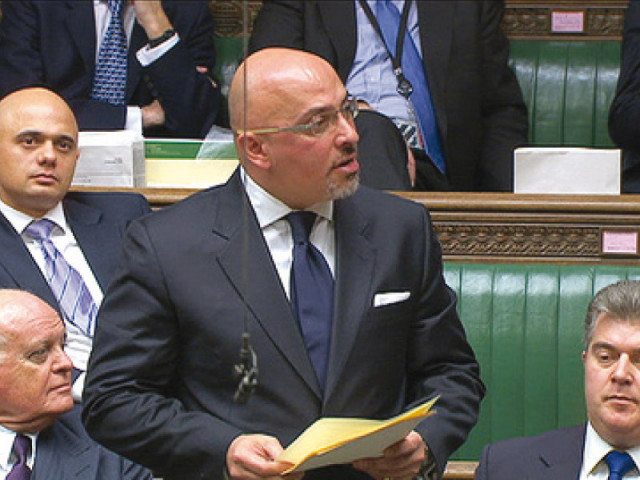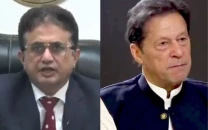Nadhim Zahawi, Part 1/2: Meet Britain’s first Middle Eastern-origin MP
The Conservative politician and entrepreneur speaks about reform and revolution.

But Nadhim Zahawi, unlike many ethnic minority politicians before him, does not exploit his family background for professional gain. He thinks those who dwell on such issues are outdated and out-of-touch. On the ground, he argues, Britain is now by and large a post-racial society.
“People in this country are truly colour-blind,” Nadhim tells The Express Tribune in Portcullis House, the parliamentary office building connected to the House of Commons by an underground tunnel, circumventing the gaping tourists at street-level. “Put aside my own selection, but I got 51% of the vote in an eight-horse race. Before that election, they couldn't pronounce my name.”
This is a reference to the 2010 general election when he stood for the Conservative party in Stratford-on-Avon, an overwhelmingly white, middle-class constituency. One might already think of such a place as symbolising the heart of England; that it houses the birthplace of William Shakespeare lends further weight. It’s a wonderful British story that the new local MP is the son of Iraqi Kurds.
Yet over the last few years there has also been angst of Hamlet-like proportions over the meaning and application of multiculturalism in Britain. Nadhim remains unhappy with the previous government’s lax approach to immigration. “If you are going to settle in this country, as my parents did, then by definition you must like something about that country. Therefore it can only be right that you attempt to integrate, not necessarily by acting against your own religious or cultural beliefs, but you can marry the two, so you are part of the society that has welcomed you in the first place.
"We went too far down the road of segregation almost, not asking anyone to do anything that may in some way offend them ... that was a terrible indictment of the Labour government.”
Government has its role to play but, true to classical liberal principles, Nadhim ultimately calls on the individual to take responsibility for himself. It’s easy to see why. He himself radiates a can-do attitude. In addition to serving his constituency and sitting on the Business, Innovation and Skills select committee, he recently co-authored a book, Masters of Nothing, about how understanding human behaviour is the key to ensuring no repeat of the global financial crisis.
For this he may have drawn on his biggest achievement to date, building the on-line market research and polling business YouGov over eleven years. Does he think a strong business background is good preparation for life as an MP?
“In business there is a predictability to your life. There is very little structure in this place, you very quickly have to cancel your whole diary because of events in the chamber. I quite like it because of the challenge.
“I took a start-up and failed, then had a start-up which succeeded, taking it all the way to the public market. So I learnt about access to finance, retaining human resources … it was a fantastic learning curve to the whole cycle of business. But the time I spent in local government was also very useful, because it’s a mini version of this place.”
In many ways, Nadhim grew up in the Conservative party, in Conservative politics. He became a member at university in the early 1980s. His main concerns till this point had been, like most young men, partying, and, like very few young men, equestrianism.
But in his first week at college he encountered someone from the Socialist Workers Party handing out magazines outside the University of London Union. “I politely rejected it, at which point he decided he was going to beat me up.” The man had clocked Nadhim as a bourgeois enemy – even though, as it happens, Nadhim’s family was going through a very rough financial patch at the time – and so he decided “to find out what the other side thought.”
In tomorrow’s second part, we’ll find out how Nadhim then went on to ‘grow up’ in the Conservative party, his views on democracy in Muslim countries, and the scale of his political ambitions.
Part 2 can be read here.
Published in The Express Tribune, May 2nd, 2012.



















COMMENTS
Comments are moderated and generally will be posted if they are on-topic and not abusive.
For more information, please see our Comments FAQ